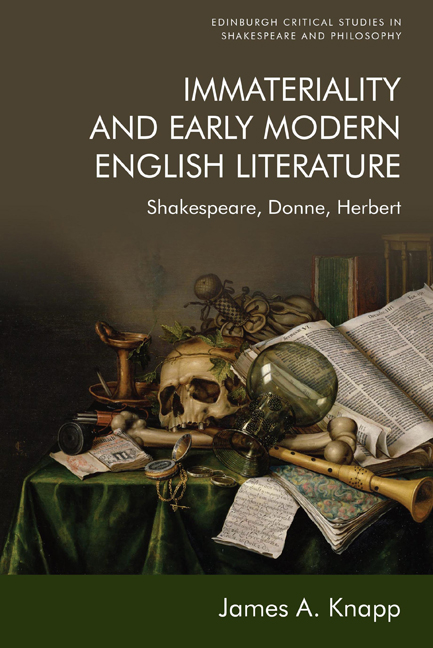8 - Cognition and Its Objects, or Ideas and the Substance of Spirit(s)
Published online by Cambridge University Press: 10 October 2020
Summary
Idea is a bodilesse substance, which of it selfe hath no subsistence, but giveth figure and forme unto shapelesse matters, and becommeth the very cause that bringeth them into shew and evidence.
Socrates and Plato suppose, that these Idea bee substances separate and distinct from Matter, howbeit, subsisting in the thoughts and imaginations of God – that is to say, of Minde and Understanding.
Aristotle admitteth verily these formes and Idea, howbeit, not separate from matter, as being the patterns of all that which God hath made.
The Stoicks, such as were the scholars of Zeno, have delivered, that our thoughts and conceits were the Idea.
Plutarch, Morals, trans. Philemon HollandAnd now we might add something concerning a certain most subtle Spirit which pervades and lies hid in all gross bodies; by the force and action of which Spirit the particles of bodies mutually attract one another at near distances, and cohere, if contiguous; and electric bodies operate to greater distances, as well repelling as attracting the neighbouring corpuscles; and light is emitted, reflected, refracted, inflected, and heats bodies; and all sensation is excited, and the members of animal bodies move at the command of the will, namely, by the vibrations of this Spirit, mutually propagated along the solid filaments of the nerves, from the outward organs of sense to the brain, and from the brain into the muscles. But these are things that cannot be explained in few words, nor are we furnished with that sufficiency of experiments which is required to an accurate determination and demonstration of the laws by which this electric and elastic Spirit operates.
Sir Isaac Newton, conclusion to Principia MathematicaThe Naturalists have been engaged in thinking about Nature. They have not attended to the fact that they were thinking. The moment one attends to this it is obvious that therefore something other than nature exists.
C. S. Lewis, MiraclesIn sonnet 44, Shakespeare uses what might be called a thought experiment to explore the relationship between mental activity and embodied experience in elemental terms:
If the dull substance of my flesh were thought,
Injurious distance should not stop my way,
For then despite of space I would be brought,
From limits far remote, where thou dost stay
- Type
- Chapter
- Information
- Immateriality and Early Modern English LiteratureShakespeare, Donne, Herbert, pp. 287 - 319Publisher: Edinburgh University PressPrint publication year: 2020



